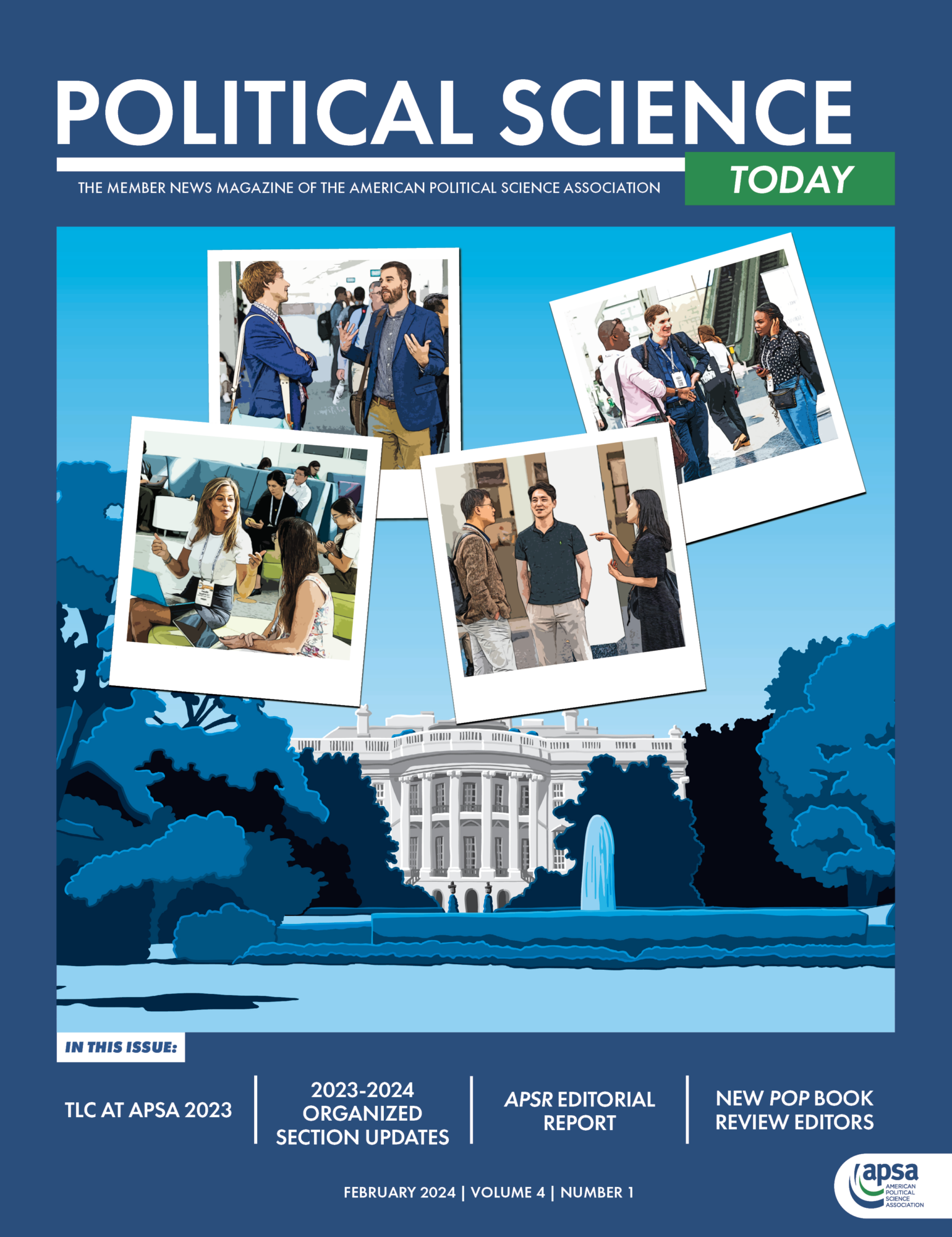Application Deadline: April 28, 2024
The American Political Science Association’s (APSA) Teaching and Learning program is pleased to announce a call for proposals for a small cohort of political scientists to participate in a three-day teaching and learning symposium June 27-29 at APSA’s headquarters in Washington, DC. APSA’s teaching symposia provide a workshop environment where people with similar goals can come together to share their own practices and research related to teaching AND create new teaching resources for their courses. Led by Joseph Roberts (Roger Williams University) and Charmaine Willis (Skidmore College), the theme of this symposium is Teaching Comparative Politics.
The goals of the symposium are to provide a space where participants can build supportive relationships with other teacher-scholars who teach comparative politics from a variety of perspectives or approaches. The participants would be expected to:
- To present and discuss class activities, readings, or assignments that frame the major empirical and theoretical questions in comparative politics for undergraduate students.
- To work to diversify and internationalize the comparative politics curriculum beyond Western scholarship and cases to incorporate Global South perspectives.
- To contribute teaching resources to a collection on comparative politics to be shared on APSA Educate.
Applicants should have experience teaching comparative politics to undergraduate students. This includes, but is not limited to, introductory courses, area studies courses, or upper-level comparative politics courses. We encourage applications from political science faculty at all stages of their careers, from a range of institutions, including universities and two- and four-year colleges. Advanced graduate students are also strongly encouraged to apply. We strongly encourage applicants who are interested in incorporating Global South perspectives in comparative politics courses.
Possible topics or course techniques include but are not limited to:
- Simulations/games/active learning exercises
- Readings, films, and other material focusing on how you incorporate them (readings is broadly defined to include any print or online source including multimedia)
- Online tools and activities
- Techniques/tools that introduce broader intercultural awareness and understanding of the complex subjects of comparative politics
The symposium begins with a series of presentations and discussions of each participant’s resources. Your presentations need not be publication-ready, only something you have found useful and want to develop further with colleagues. Presentations are short, allowing for significant discussion from the group, in a workshop-style atmosphere.
After each participant presents their resource, the remainder of the symposium is dedicated to team-based collaborations developing resources to innovate the classroom. Teams are constructed during the symposium, based on participants’ interests. Each team then decides what kind of resource they want to produce (e.g. in-class exercise, simulation, social media project). They then spend time creating and presenting on their new resource, which teams finalize after the symposium. The resultant teaching resources are disseminated through APSA Educate, political science’s virtual teaching resource library.
Start Your Application
Proposals should be submitted online and include:
- Recent CV, including detailed information on teaching experience
- 250-word abstract summarizing the resource or topic you plan to present at the symposium
- 250-word description of your motivation and goals for participating in the symposium
Successful applicants will be notified in early May. Course registration fees ($85) may be paid online in advance of the workshop. Need-based travel grants are available. For more information, see our FAQs and/or contact teaching@apsanet.org.






